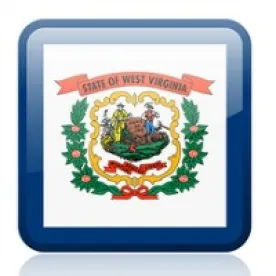On July 15, 2020, the Virginia Department of Labor and Industry’s Health and Safety Codes Board (“Board”) voted 9-2 to adopt emergency temporary standards designed to prevent the spread of COVID-19 in the workplace. As businesses slowly reopen around the U.S., Virginia is the first jurisdiction in the country to adopt a COVID-19 workplace health and safety standard. The standard applies to every employer within the Commonwealth that falls under the Virginia Occupational Health and Safety Program (“VOSH”).
The standard classifies occupations based on “exposure risk level” and requires adherence to various practices based on the risk level of a given occupation. Based on the potential of contracting and spreading COVID-19, an occupation can have a “very high,” “high,” “medium,” and “lower” exposure risk level. In determining exposure risk level, the factors employers must consider include, but are not limited to: (1) the job task performed; (2) whether the workplace is indoors or outdoors; (3) the presence of the virus in the workplace; (4) the presence of persons known or suspected to have the virus; (5) the number of employees in relation to the size of the workplace; (6) working distance between employees; and (7) the frequency and duration of close contact employees have with co-workers and other people. The standard makes clear that the use of face coverings alone does not establish a “lower” exposure risk level.
What does the standard require Virginia employers to do?
Employers within every exposure risk levels must assess their workplaces for hazards and job tasks that could expose employees to COVID-19, inform employees of methods for self-monitoring, and encourage employees constantly to monitor their health. The standard also requires employers to develop policies for employees who experience COVID-19 symptoms to report their statuses when no alternative diagnosis has been made. Employers may not allow employees known or suspected to have COVID-19 to report to work until they are cleared to return to work, unless teleworking is an option. The standard also requires employers to ensure that their sick leave policies are flexible and compliant with public health standards and other applicable law, including the Families First Coronavirus Act (“FFCRA”).
To track COVID-19 exposures, employers must develop a HIPAA-compliant procedure for receiving positive COVID-19 test results for employees, temporary employees, and the employees of subcontractors in the workplace within the previous 14 days from the date of the positive test. Employers must notify potentially exposed employees and the Virginia Department of Health within 24 hours of the potential exposure, ensuring that the names of the individuals who contracted the virus remain confidential. Employers that rent workspace must notify the building owner within 24 hours of discovering two or more positive results. If there are three or more positive results, the employer must notify the Virginia Department of Labor and Industry with 24 hours.
Moreover, employers must implement policies and procedures for allowing employees known or suspected to have COVID-19 to return to work. These policies must require employees to first consult with appropriate healthcare professionals. Although the standard allows employers to use a “symptom-based” system to determine if employees are eligible to return to work, employers may require employees and contractors to also undergo a test under the “test-based” system before employees are permitted to return. For asymptomatic employees, the employer may use a “test-based” system or a “time-based” system. Employers must pay for all testing required by its policies.
To comply with the standard, employers must ensure that employees practice social distancing in the workplace by making announcements, posting signs, decreasing the density of employees, and adhering to Virginia’s occupancy limits. In addition, employers must eliminate or restrict employees’ access to breakrooms and common areas. If access to the common areas is restricted, the employer must post guidelines outside of the entrances that encourages social distancing and provide instructions on sanitizing shared surfaces. If employees are required to share a vehicle for work, they must wear the appropriate personal protective equipment (“PPE”). Employees with medical conditions that would be exacerbated by wearing a surgical mask can be excluded.
When do Virginia employers have to comply with the standard?
Most of the standard takes effect 60 days after its effective date. The requirement that employers train employees on infectious disease preparedness and response plans, however, becomes effective within 30 days of the effective date. The emergency standard will automatically expire within six months. If the Governor lifts the State of Emergency in the Commonwealth, the Board passes a permanent rule, or the Board repeals this standard, the standard will no longer apply.
Practical Tips for Compliance
Virginia employers should consider preparing a comprehensive infectious disease preparedness and response plan that covers all of the required information to ensure compliance with the standard. The plan should include all required policies and expectations regarding what employees must do if they experience symptoms and receive a positive test, and provisions for returning to work.





 />i
/>i

